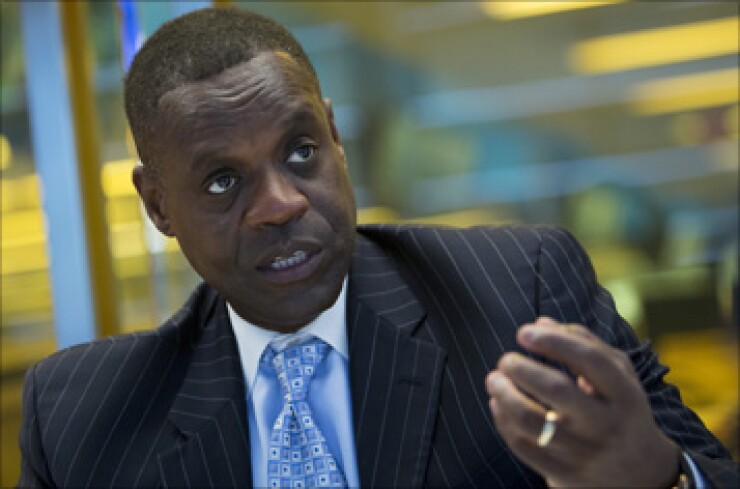
CHICAGO -- Detroit Emergency Manager Kevyn Orr made his first court appearance late Friday to testify in the city’s historic bankruptcy trial.
Orr was called as the final of five witnesses for the city, which is trying to prove that it is legally eligible to enter Chapter 9 protection.
The emergency manager testified only briefly before the court ended for the day. He described his background before coming to the city, including work on the Chrysler bankruptcy, his initial meetings with the state, and the substandard services he found when he came to Detroit to take the job.
Orr said he met with Gov. Rick Snyder in February, a month after being asked by a Snyder aide if he was interested in the job. The offer came the day after Jones Day, Orr’s firm at the time, made its presentation to the city to be its law firm for the restructuring.
Orr and state officials did not talk about the possibility of bankruptcy at the February meeting, Orr testified. He said that Snyder would later send him “attaboy” emails as it became clear he was a finalist for the position.
Orr also said his role in the Chrysler bankruptcy was to decide which dealerships should be closed.
He will take the stand again Monday morning.
Snyder will also testify Monday, starting at 1 p.m. U.S. Bankruptcy Judge Steven Rhodes, who is overseeing the case, agreed to set the governor’s time in stone even if his testimony interrupts other witnesses. The eligibility trial is expected to continue at least through Tuesday, with additional dates in early November set aside if needed.
Creditor attorneys’ cross-examination of Ken Buckfire, the city’s investment banker, took up most of Friday. Buckfire, of Miller Buckfire & Co., testified that he knew the state was considering bankruptcy as an option for the city as early as spring 2012. Buckfire said he told Snyder that the option should be “avoided at all costs” but still needed to be considered as a last resort.
Buckfire also said that his team did not give much weight to the state’s constitutional protection of the city’s pensions before unveiling Orr’s June restructuring proposal.
“They don’t have security,” Buckfire said, referring to retirees. “We did give it some weight but did not deem it relevant.”
The banker also said that he never spoke directly with Orr about the need to cut pensions and other retirement benefits because it was so obvious.
“Are you saying it was so self-evident that no one had to say it?” an attorney for a committee representing the city’s retirees asked.
“Yes,” Buckfire said.
Creditor attorneys are trying to prove that Orr and the state were determined to file for bankruptcy in order to cut pensions, and that they did not negotiate in good faith with the city’s creditors. Buckfire said the need to cut pensions was a matter of simple math.
Detroit’s police chief, James Craig, took the stand to describe how the city’s dismal fiscal position endangers its residents. Craig said when he took over in July, response time to a call was 50 minutes; officers had inadequate bullet proof vests and he brought his own from Cincinnati; that one officer’s entire job was only to gas and clean the chief’s car; and that there were 23 officers assigned to Mayor Dave Bing for protection.
“Everything’s broken,” Craig said of his impressions after taking over. “Deplorable conditions. Crime is extremely high, morale low.”
Also Friday, the Detroit City Council declined to vote on a financing proposal offered as an alternative to Orr’s plan to secure a $350 million debtor-in-possession loan with Barclays. The council first rejected Orr’s DIP loan Monday, and later was approached by an unnamed investment firm with a proposal to raise a similar amount of money, council members said. They spent the week considering the new proposal but decided in the end that neither one was good for the city.
The council Friday instead passed a lengthy resolution that will be filed with the bankruptcy court explaining why it rejected Orr’s $350 million DIP loan.





